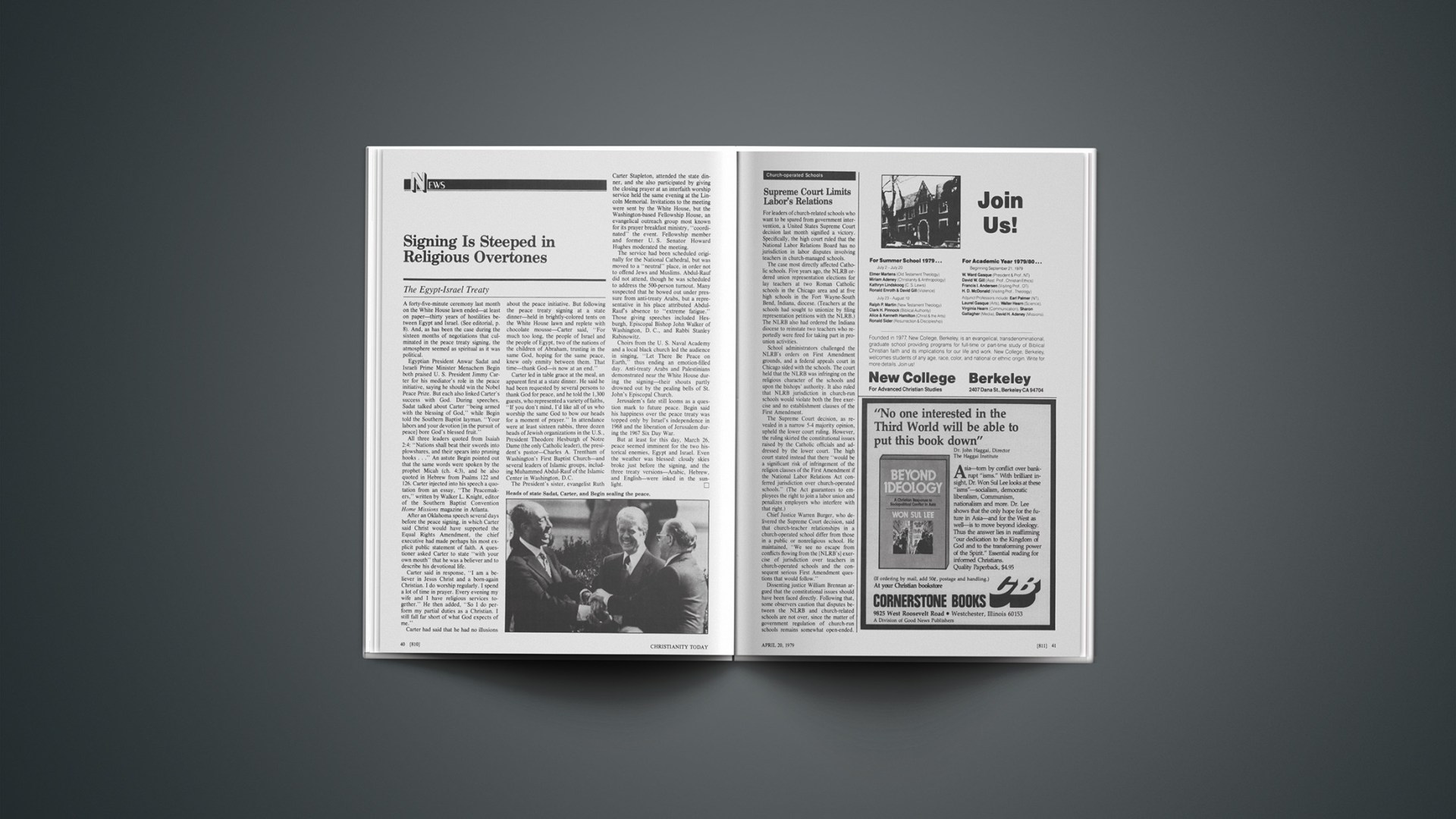For leaders of church-related schools who want to be spared from government intervention, a United States Supreme Court decision last month signified a victory. Specifically, the high court ruled that the National Labor Relations Board has no jurisdiction in labor disputes involving teachers in church-managed schools.
The case most directly affected Catholic schools. Five years ago, the NLRB ordered union representation elections for lay teachers at two Roman Catholic schools in the Chicago area and at five high schools in the Fort Wayne-South Bend, Indiana, diocese. (Teachers at the schools had sought to unionize by filing representation petitions with the NLRB.) The NLRB also had ordered the Indiana diocese to reinstate two teachers who reportedly were fired for taking part in prounion activities.
School administrators challenged the NLRB’s orders on First Amendment grounds, and a federal appeals court in Chicago sided with the schools. The court held that the NLRB was infringing on the religious character of the schools and upon the bishops’ authority. It also ruled that NLRB jurisdiction in church-run schools would violate both the free exercise and no establishment clauses of the First Amendment.
The Supreme Court decision, as revealed in a narrow 5–4 majority opinion, upheld the lower court ruling. However, the ruling skirted the constitutional issues raised by the Catholic officials and addressed by the lower court. The high court stated instead that there “would be a significant risk of infringement of the religion clauses of the First Amendment if the National Labor Relations Act conferred jurisdiction over church-operated schools.” (The Act guarantees to employees the right to join a labor union and penalizes employers who interfere with that right.)
Chief Justice Warren Burger, who delivered the Supreme Court decision, said that church-teacher relationships in a church-operated school differ from those in a public or nonreligious school. He maintained, “We see no escape from conflicts flowing from the [NLRB’s] exercise of jurisdiction over teachers in church-operated schools and the consequent serious First Amendment questions that would follow.”
Dissenting justice William Brennan argued that the constitutional issues should have been faced directly. Following that, some observers caution that disputes between the NLRB and church-related schools are not over, since the matter of government regulation of church-run schools remains somewhat open-ended. In the Supreme Court ruling, the majority said that Congress might have to pass additional legislation to cover church-operated schools in the labor act.
Most Protestant schools were not directly affected by the Supreme Court decision: an informal survey of three major Protestant day school associations revealed that there is no union activity among member schools. However, leaders of those groups were following the Supreme Court decision closely, since it pertains to all such schools.










